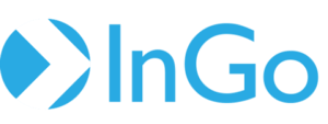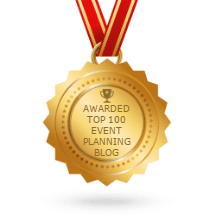Events are a strategic component of just about any business and can provide a great opportunity to get the word out on your products or services. In fact, around 98% of consumers are more likely to purchase a product or service after attending an event. Despite statistics like this, it can still be difficult to measure the return on investment (ROI) from events. There are many metrics to focus on, with revenue and cost being two of the most popular, and it can be hard to figure out what “success” looks like. This is why you’ll want to utilize all the strategies and tools at your disposal in order to maximize your events, which in turn will increase the likelihood of you getting a good return on your initial investment.
Keep reading to learn more about a few simple strategies for measuring the ROI of your next event.
The power of referral marketing
Out of all of the ways to define and measure success, leveraging the power of referral marketing is one of the strongest. Referral marketing allows you to harness the networks of your speakers, sponsors, and attendees to drive more attendance and engagement. People are 90% more likely to trust and buy from a brand recommended by a friend so it stands to reason that the same concept applies to attending events. Here at InGo, we’ve simplified this process into one easy platform where your speakers, sponsors, and attendees can quickly share that they’re attending your event.
For example, let’s say your keynote speaker, Jane Doe, has 500 connections on LinkedIn. In one easy step, she can share that she’s speaking at your event (with all the pertinent details) with her contacts. Since Jane is a trusted leader in her space, her connections trust that the event is relevant to them and will want to see her speak. Once they’ve registered, they can share that they’re attending with their connections, leveraging that same word of mouth. With this strategy, you know that you’re getting the right people to your event who will be most interested in your products or services, and are likely to convert into a customer. Now, that’s a good return on investment! And with InGo’s platform, you’ll be able to see exactly how you got there so you can replicate it for future events.
Measure sentiment
Measuring how attendees felt about your event is one of the best, and most direct, ways to understand the success (or not) of your event. If you’ve used referral marketing as described above, this will be even easier because you can ask your sponsors, speakers, and attendees to share what they heard in conversations at the event. Additionally, you can use tools like pre- and post-event surveys and polls to see what attendees liked, didn’t like, and how likely they are to attend a future event. And if you’re noticing a lot of repeat attendees, you can reach out to them to understand why they keep coming back.
Dive into the community
Another great benefit of leveraging referral marketing is that you create a community of like-minded potential customers. Your current event attendees know dozens of other industry contacts who should be attending your event. They’re likely already in a community together on social media and other platforms and once you add the camaraderie of attending the same event, you’ve got a solid community that came together effortlessly.
Additionally, you can build strategies intended to create a brand community before, during, and after your event. Create a channel for your event on a messaging platform like Slack where folks can introduce themselves and learn about each other before going to the event. Invite your social media followers to post photos and videos from your event. Tying your event to community building can not only give you a boost in your social media presence, but also to the quality and effectiveness of your events.
Look at your reach
By virtue of the medium, more people can attend virtual events, which we’ve seen firsthand during the pandemic. Even though many restrictions are easing, virtual events aren’t going anywhere and they can be a simple way to boost your attendance numbers. While many people miss gathering in-person, saving money on travel and accommodations can be an appealing trade-off and make prospective attendees more likely to join your event. With platforms such as Zoom, Facebook Live, and others, businesses can create events that closely simulate in-person ones with breakout groups, a “main stage,” networking opportunities, and more. Consider virtual events as an easier way to increase your numbers if hosting something in-person will be too costly or attendees aren’t ready to travel and gather. We specialize in virtual events and can help you get three times more event attendees using our platform.
Conclusion
We know that event marketing can be challenging and that measuring the success of events can be a tough nut to crack. You already know how important events can be to your brand’s growth, but you want to make sure you’re getting the payoff. In addition to measuring revenue and cost, consider how referral marketing, building a community, and increased reach can all be helpful indicators of success for your next event.
There are many other ways to measure your ROI as well, all of which can be enhanced by leveraging referral marketing. Using InGo, you can turn your attendees into more attendees with the #1 tool for community referral marketing. Reach out to schedule a demo and see how you can enable your current attendees to influence others to attend your event.


